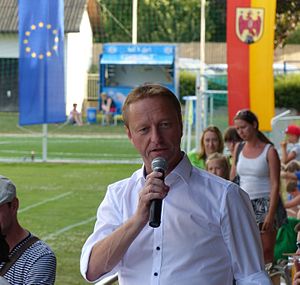| |||||||||||||||||||||||||||||||||||||||||||||||||||||||||||||||||||||||||||
All 36 seats in the Landtag of Burgenland 19 seats needed for a majority | |||||||||||||||||||||||||||||||||||||||||||||||||||||||||||||||||||||||||||
|---|---|---|---|---|---|---|---|---|---|---|---|---|---|---|---|---|---|---|---|---|---|---|---|---|---|---|---|---|---|---|---|---|---|---|---|---|---|---|---|---|---|---|---|---|---|---|---|---|---|---|---|---|---|---|---|---|---|---|---|---|---|---|---|---|---|---|---|---|---|---|---|---|---|---|---|
| Turnout | 187,497 (74.9%) | ||||||||||||||||||||||||||||||||||||||||||||||||||||||||||||||||||||||||||
| |||||||||||||||||||||||||||||||||||||||||||||||||||||||||||||||||||||||||||
 Results by municipality. | |||||||||||||||||||||||||||||||||||||||||||||||||||||||||||||||||||||||||||
| |||||||||||||||||||||||||||||||||||||||||||||||||||||||||||||||||||||||||||
The 2020 Burgenland state election was held on 26 January 2020 to elect the members of the 22nd Landtag of Burgenland. The snap election was called in the wake of the Ibiza affair in May 2019, which caused the Social Democratic Party of Austria (SPÖ) to terminate its coalition with the Freedom Party of Austria (FPÖ).[1]
The centre-left SPÖ achieved its best result since 2005, winning an absolute majority on a swing of eight percentage points. The conservative Austrian People's Party (ÖVP) improved on its 2015 result, but did not gain any seats. The FPÖ lost a third of its votes, falling to 9.8% and four seats. The Greens stayed level, while List Burgenland (LBL) lost most of its votes and both of its seats. The net result was a shift of four seats to the SPÖ.
The SPÖ's unexpectedly strong result came after a string of election losses since 2017, including its worst-ever result in the 2019 federal election result three months earlier.[2] Commentators attributed this to the conservative positions on immigration and national security taken by Governor Hans Peter Doskozil.[3] Burgenland is a traditional stronghold of the SPÖ, who have governed the state continuously since 1964.
Due to its Landtag majority, the SPÖ did not seek a coalition partner, and entered government alone. Doskozil was sworn in as Governor for a second term on 17 February. Fellow SPÖ member Astrid Eisenkopf became Deputy Governor, the first woman to hold the position in Burgenland.[4]
- ^ "Austrian Social Democratic provincial governor ends cooperation with Freedom Party". Reuters. 2019-05-19. Retrieved 2020-01-27.
- ^ Network, EURACTIV (2020-01-27). "Sigmar Gabriel joins Deutsche Bank, frustrates social democrats". www.euractiv.com. Retrieved 2020-01-27.
- ^ Grüll, Philipp (2020-01-27). "VIENNA - Landslide victory for social democrats in state elections". www.euractiv.com. Retrieved 2020-01-27.
- ^ "Hans Peter Doskozil elected governor of Burgenland". burgenland.spoe.at (in German). 17 February 2020. Retrieved 3 August 2020.


